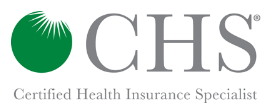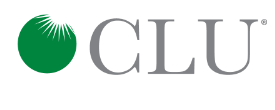Extended Health Benefits
Extended health benefits are additional insurance coverage that you can offer your employees – for all the things that aren’t covered by BC’s Medical Service Plan (MSP). MSP covers things like physical exams, doctor visits, maternity care, and so on. To help with what isn’t covered, you can offer your employees Extended Health Benefits.
What are Extended Health Benefits?
Extended health benefits start where provincial health care leaves off. That is, these plans cover medical exams, procedures, therapies, and related services that fall outside of what MSP covers. By offering an extended health benefits plan to your employees, you help to lower the cost of health care, taking the worry of substantial medical bills off their shoulders.
What do Extended Health Benefits Cover?
Extended Health Benefits can often be divided into the following categories:
- Paramedical costs
- Prescription costs
- Hospital costs
- Medical supplies/equipment costs
- Out-of-province medical costs
- Other medical costs
Paramedical Costs
This category refers to service charges for these paramedical practitioners:
- Physiotherapist
- Speech Therapist
- Chiropractor
- Naturopath
- Podiatrist
- Registered Massage Therapist
- Nutritionist
- Chiropodist
- Kinesiologist
- Osteopath
- Optometry
- Dietician
- Mental health practitioners
Coverage for these services often takes the form of reimbursement, depending on the provider, so that the claimant first pays out of pocket, then files a claim for reimbursement up to a predetermined amount for each practitioner per year.
Prescription Costs
Prescription coverage accounts for the largest part of an employer’s health care plan costs, at up to 80% of total claims.
There are four types of drug benefits plans:
• Generic: This type of plan only covers drugs that have a generic version.
• Generic Substitution: This plan type will only cover generic drugs unless none are available, in which case the Brand Name will be allowed.
• Brand Name: Brand name drugs can be used regardless.
• Managed Formularies: Typically, insurance providers will have a limited list of prescriptions (a managed Formulary) that they will cover, to offer a lower-cost solution. Great for cost savings but not always great for employees.
Hospital Costs
British Columbia’s Medical Services Plan covers basic medical, hospital, and surgical expenses, including accommodation in a hospital ward. The Hospital Benefit allows the claimant to obtain private or semi-private hospital accommodations, if available.
Medical Supplies/Equipment Costs
Our extended health benefits plan provides coverage for medical supplies and equipment and operates on a reimbursement system, so the claimant pays for the item out of pocket and then submits a claim for reimbursement.
The types of medical supplies and equipment covered by extended health benefits include:
- Hearing aids
- Support or compression garments
- Orthotics
- Insulin syringes
- Colostomy supplies
- Prosthetics or limb braces
- Medical furniture or mobility devices
- Oxygen and related supplies
- Ileostomy supplies
- Insulin Pumps
- Test Strips
- CPAP and BiPAP machines
Out-of-Province Medical Costs
These benefits provide coverage for people traveling outside of the province. Many people do not realize that medical coverage varies by province and some procedures may not be covered while traveling. Items that fall into the category of Out-of-Province Medical Costs are largely the same as at-home costs:
- Ambulance transport
- Physician diagnosis and treatment
- Medical services and supplies
- Hospital room and board
- Hospital out-patient services
Out of Country Medical Coverage
This benefit covers Emergency Medical Coverage outside of Canada. Most companies cover trips for up to 60 days. For your traveling employees, this can be a great benefit, especially for those with pre-existing conditions (*some conditions apply)
Other Medical Costs
Some medical costs don’t fit neatly into the above categories, so they are referred to as “Other Medical Costs.” The services covered under this plan include:
- At-home nursing
- Dental expenses incurred because of an accident
- Convalescent care
Why Choose Us for Extended Health Benefits?
Lifetime Benefits offers comprehensive extended health benefits, providing medical coverage and peace of mind for your employees. We work with you to customize a group benefits plan, including extended health benefits, that best fits your employees’ needs. Please feel free to call us today and we will help you find a plan that suits your needs and budget. Click here to contact us today.
Get a free no-obligation online quote for employee benefits by following the link:
Extended Health Benefits FAQ
Yes, it comes standard as part of an extended health plan and in some cases it can be removed.
Glasses can vary by price depending on where you go to get your frames and lenses. The plan would not be a cost effective if it covers high end glasses from boutique eyewear stores.
Yes CPAP and BiPAP are covered under medical supplies and different plans will have different maximums.
Most plans will cover insulin pumps such as Omnipod.
Extended health benefits are a private insurance that includes prescription drugs, health practitioners such as massage therapy, chiropractor, physiotherapist and medical supplies. They also usually include travel insurance and private nursing.
Extended health coverage is a catch-all that includes health services beyond the government available services such as doctors and hospitals.
Approximately 60% of Canadians have private health insurance.
No, it is a business expense for the employer and received tax-free by the employee. Employee assistance programs are an exception.
Absolutely, once you leave the doctors office or hospital and seek treatment, you will most likely find yourself out-of-pocket for practitioners or prescriptions. Benefits are essential.
Private extended health plans cover prescriptions, medical supplies and services, practitioners and dental care. They also include travel insurance.
They do, but the plans are very limited, include a lot of exceptions and limitations. There are better less expensive plans out there, especially for businesses.
Extended health premiums qualify for the medical tax credit for individuals and is a business expense for employers.
Yes any amount paid by you personally can be claimed under the medical tax credit.
Yes, benefit plans are mandatory and a condition of employment. There are situations where an employee can opt out. This includes if they currently are covered by another benefits plan such as one from their spouse. The employee should still be on the plan as a waiver and would still qualify for taxable benefits such as long term disability, life or critical illness insurance.
Flexible benefit plans allow you to allocate your benefit “allowances” to benefits other than health and dental, such as wellness accounts or Group RRSP. You can only change your contribution once per year. If you allocated a low health or dental amount and then need to use it, it is too late for that year. Flexible benefits are also generally more expensive.
Personal insurance plans can range from $60 to $400 and can vary based on age, amount of benefits and number of members of the family.
Personal insurance plans can range from $60 to $400 and can vary based on age, amount of benefits and number of members of the family.
There are many factors that go into costs such as age, family status and industry. Single employees can range from $65-$120, Couples $120-$160 and families $160-200. You can ask employees to pay up to 50% of those costs.
Benefits help attract and retain quality employees. Happy , physically and mentally healthy employees are more productive and likely to recommend your workplace to others.






